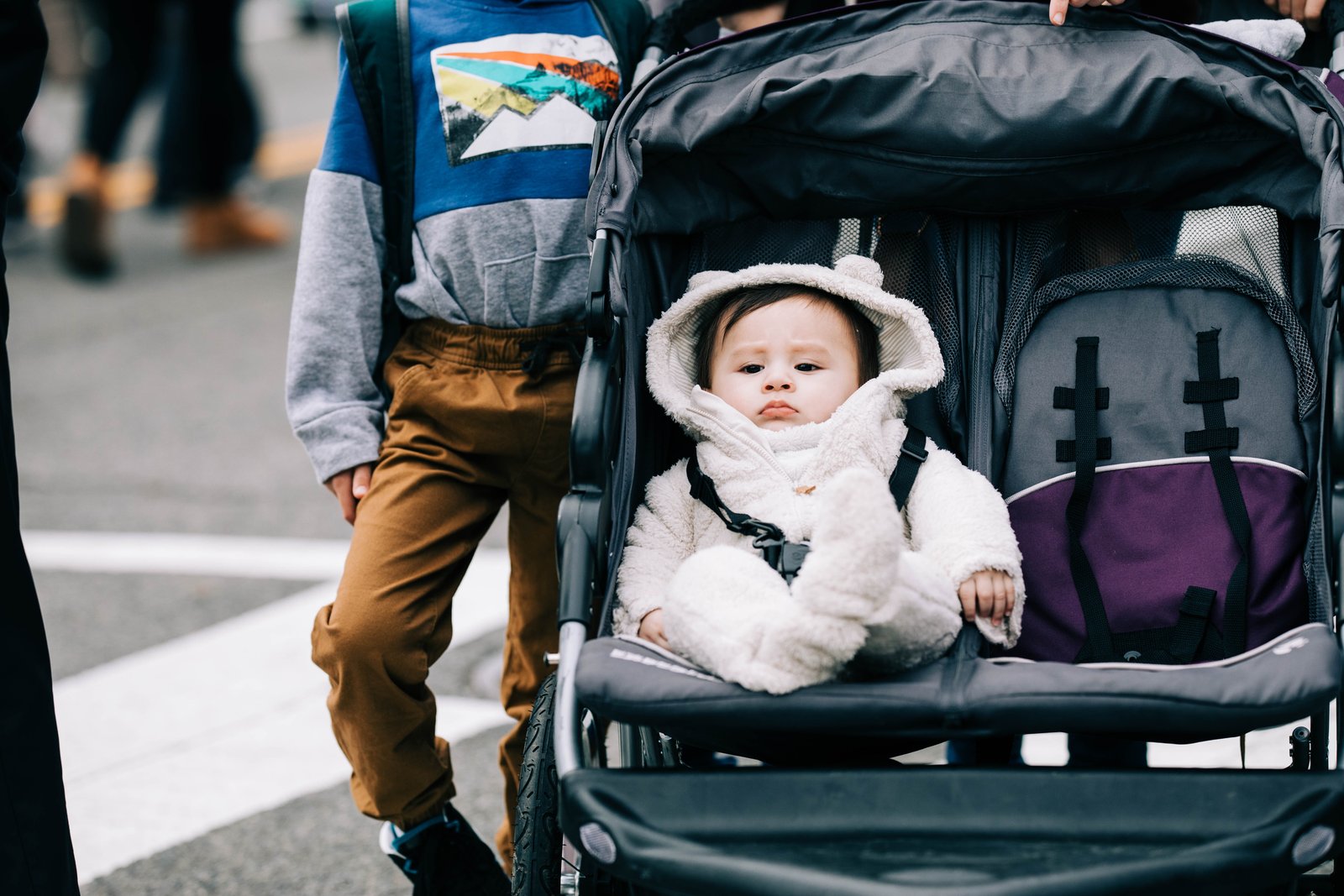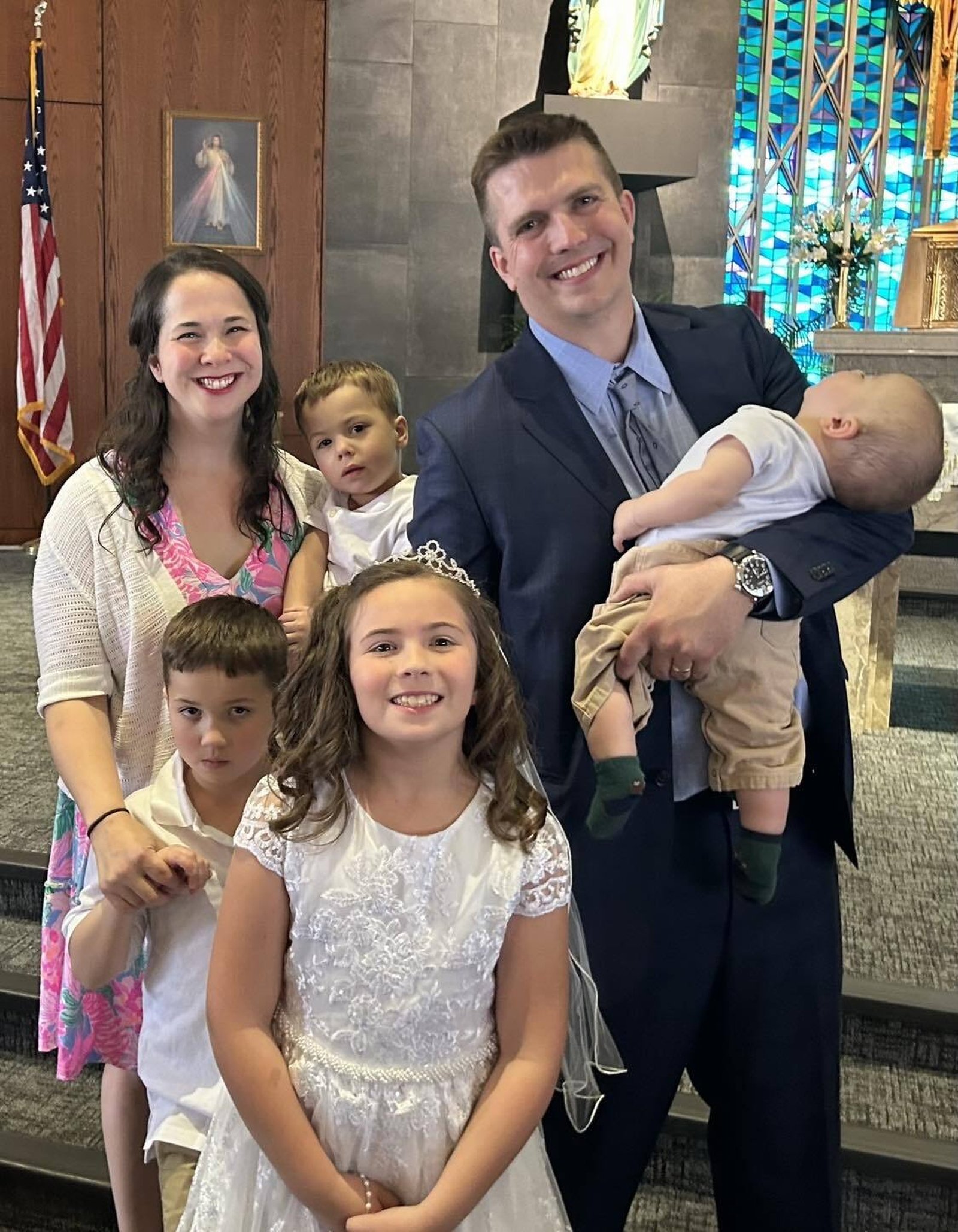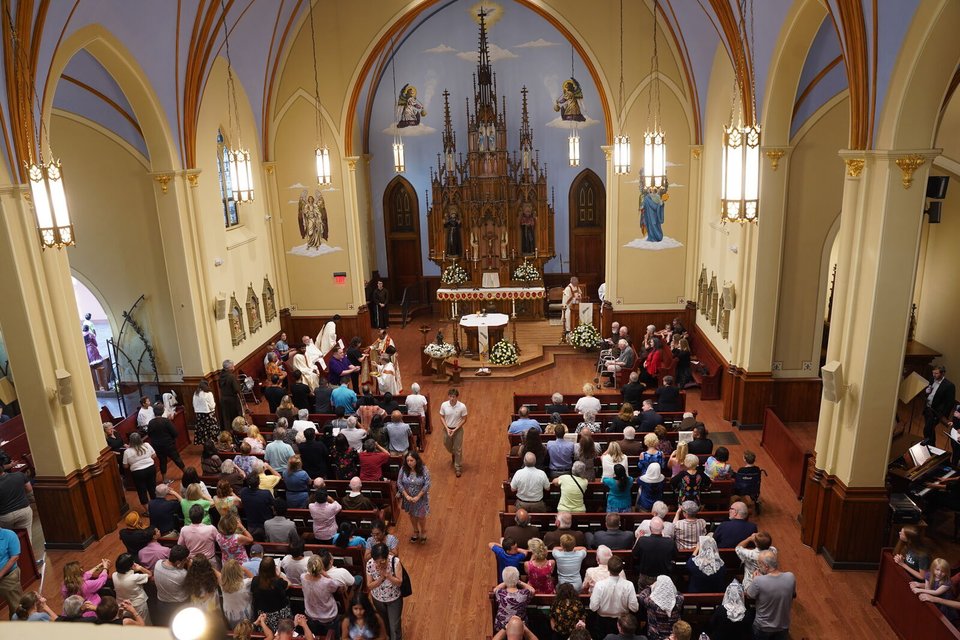Although canon law no longer requires it, tradition of naming children after figures of faith goes back centuries, professor says
DETROIT — What’s in a name? To Catholics, a great deal.
When planning for a family, parents take great care in considering what to name their children, considering factors such as family history, tradition, social status, current trends, local customs or religious meaning.
For Catholic families, naming traditions often take the form of saints' names, names connected to feast days or important faith figures in their lives.
Don't miss another story
Did you know you can get Detroit Catholic's latest daily or weekly articles delivered to your inbox? It's easy and free to sign up.
“We went into the delivery of our oldest with a different name picked out (we were being surprised so we had both a boy and girl name selected). However, our oldest ended up being born on Divine Mercy Sunday, and because of that, we felt called to pay tribute to (Pope St. John Paul II, who instituted the feast day), whom I’ve always had a devotion to, and name him John Paul,” Aleksandra Staniszewski wrote to Detroit Catholic in response to a survey of local parents about their children’s names.
Staniszewski, whose family includes Polish heritage, considered naming their son "Karol" — the pope's given name — but opted for the papal name instead.
“After we had finally settled on the name, we realized that we had also named our son after the two priests (who) celebrated our wedding, Fr. John Riccardo and Fr. Paul Snyder," Staniszewski added. "We felt like this was a God wink and affirmed our decision to name him John Paul.”
From that point forward, Staniszewski said the timing of each of her children's births seemed to be significant and influenced their names.

Staniszewski said the family is expecting another child in August and has been researching saint feast days in July and August.
"But we know we will have to meet our baby face to face before we make the final decision,” she said.
Names hold great weight, but for Catholics, they are also a signifier of one’s dignity and connection to God the Father, said Donald Wallenfang, Ph.D., professor of theology and philosophy at Sacred Heart Major Seminary in Detroit and a father of six.
“Everyone's name is sacred, and as the Catechism says, ‘The name is the icon of the person,'” Wallenfang told Detroit Catholic. “A lot of dehumanizing practices will avoid using people's names. They will even depersonalize pronouns and refer to another as ‘it’ or ‘enemy’ or ‘foreigner’ or other derogatory names that aren’t the personal names of an individual.”
By contrast, “names assure us of interpersonal relationships within the network of persons and the fabric of humanity and, above all, into the mystical body of Christ,” Wallenfang said.
Many Catholic parents, including those surveyed by Detroit Catholic, said they gave their children names with nods to their heritage or saints who played a role in their family lives.
For example, Eleanora Love was named after St. Valentine, whose intercession led to her conception; Lucia Grace, who was born with stork bites on her eyelids, was named for St. Lucy, the patron saint of eye problems and light; Rosalia Faith, born in 2020 during the COVID-19 pandemic, was named for St. Rosalia, the patron saint of plagues and pandemics. Clare was named for her home parish, St. Clare of Montefalco.
Another mother who responded to Detroit Catholic's inquiry gave her five children names derived from the Litany of Loreto. Others named their children after important historical or pop culture figures, only to later discover the meaning and significance of a corresponding saint with the same name.
But it's not just new babies — confirmation candidates, religious men and women, and even popes adopt new names as outward signs of inward convictions.
In Catholic circles, a custom dating back centuries is for names chosen both at baptism and later during confirmation to honor saints or biblical figures. This tradition was once rooted in canon law, which was revised in 1983, Wallenfang said.

“The whole history of (choosing Christian) names goes back to a different canonical procedure found in the 1917 Code of Canon Law,” Wallenfang explained. “In the 1917 version, paragraph 761, concerning baptism, (said), ‘Pastors should take care that a Christian name is given to those whom they baptize, but if they are not able to bring this about, they will add to the name given by the parents the name of some saints and record both names in the book of baptism.’”
While the 1983 Code of Canon Law does not mandate this norm, it remains as a custom in many Catholic families, Wallenfang said.
“The only place (the 1983 code) talks about names concerning baptism or even confirmation is the section on baptism. Paragraph 855 in the 1983 code reads, ‘Parents sponsors and the pastor are to see that a name foreign to a Christian mentality is not given,’” Wallenfang said.
Although the practice of naming children after Christian saints is no longer mandated for baptism, Wallenfang said both Scripture and the Catechism of the Catholic Church speak to the importance of a name, which can help guide parents when considering what to name their children.
For example, Wallenfang pointed to paragraph 2156 of the Catechism, which reads:
The sacrament of Baptism is conferred "in the name of the Father and of the Son and of the Holy Spirit." In Baptism, the Lord's name sanctifies man, and the Christian receives his name in the Church. This can be the name of a saint, that is, of a disciple who has lived a life of exemplary fidelity to the Lord. The patron saint provides a model of charity; we are assured of his intercession. The "baptismal name" can also express a Christian mystery or Christian virtue. "Parents, sponsors, and the pastor are to see that a name is not given which is foreign to Christian sentiment."
Additionally, Wallenfang pointed to paragraph 2158: "God calls each one by name. Everyone's name is sacred. The name is the icon of the person. It demands respect as a sign of the dignity of the one who bears it."
“With naming comes the revelation of a person. There is a deep meaning about names because names express meaning, and a constellation of meanings lights up with the name of the person,” Wallenfang said.
Lisa Kilijanczyk, a mother of four and parishioner at St. Michael the Archangel Parish in Livonia, said she and her husband talked and prayed about baby names, even while dating, but since having their children, they’ve seen how God really was the one to choose their names.
For example, Kilijanczyk's oldest son, 7-year-old Stephen Jude, was diagnosed with severe autism as a baby.
“We went and venerated the relics of St. Jude when they were traveling, and one of the times, I went by myself to pray for St. Jude’s intercession,” Kilijanczyk said. “Another time we brought Stephen to the relics, just to hope that St. Jude would keep him in his prayers in heaven and keep him in mind. St. Jude is the patron saint of impossible causes, and we are really hoping we can hear Stephen speak. He is completely nonverbal — that would be the difficult cause that we are praying for.”

With their second youngest, 4-year-old Leo Paul, the couple had his name in mind during her pregnancy, but it was his time in the NICU that sealed the deal, Kilijanczyk explained.
“As a baby, he had undiagnosed intrauterine growth restriction, and when he was born, they were very concerned about him because, developmentally, he was a lot smaller than he should have been and then had different health issues,” Kilijanczyk said. “We thought Pope Leo the Great was a fighter, and our Leo was a fighter early on.”
Kilijanczyk laughs when she talks about how her youngest son’s name came to be.
“My 9-year-old daughter, Anastasia Mary, goes to the Spiritus Sanctus Academy, and her teacher's name was Sr. Fulton Marie (OP),” Kilijanczyk said. “She told one of Ana’s classmates that ‘Fulton Simeon’ would be a beautiful baby name because the other sister at the school is named Sr. Simeon.
“Ana came home and said, ‘I know the new baby's name. The baby has got to be named Fulton,'” Kilijanczyk laughed. "We told her we hadn’t decided on a name yet, but the more we thought about it and prayed about it, the more we decided that Fulton was for us.”
Kilijanczyk said all her children's names are a nod to the Holy Spirit at work.
“My mother-in-law, when she was alive, said, ‘God names your babies,’” Kilijanczyk said. “The Holy Spirit definitely played a hand in naming our children for us because the way that their young lives have already played out has really truly connected to them the lives of the saints that they were named after.”
Names are also a way to impart strong values to children and give them role models to aspire to, Kilijanczyk added.
Wallenfang said it's important that his children’s names point them to God, and that, as a parent, it’s a privilege to be the medium through which God imparts these identities.
“It is important that those names would remind them of their origin and their destiny,” Wallenfang said. “We didn’t give them names so they could fit in with the secular world, but we gave them names that would remind them of the purpose of their being and the faith into which they were baptized."
Copy Permalink
Family life












